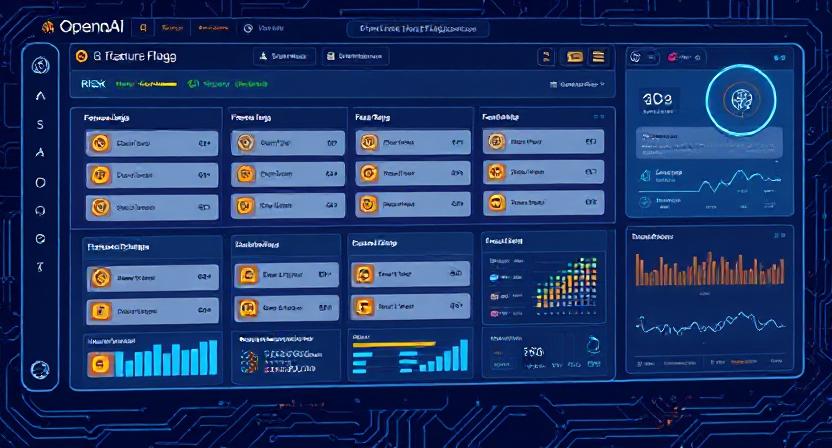OpenAI With Statsig Acquisition New Leaders

OpenAI Acquires Statsig Revamps Leadership OpenAI recently acquired Statsig, a product testing startup signaling a strategic move to bolster its internal capabilities. Additionally this acquisition...
⏱️ Estimated reading time: 3 min
Latest News
OpenAI Acquires Statsig Revamps Leadership
OpenAI recently acquired Statsig, a product testing startup signaling a strategic move to bolster its internal capabilities. Additionally this acquisition coincides with changes in OpenAI’s leadership team indicating a potential shift in direction and focus.
Statsig Acquisition Enhancing Product Development
OpenAI’s recent acquisition of Statsig for $1.1 billion is a strategic move to enhance its product development capabilities. Specifically Statsig specializes in A/B testing feature flagging, and real-time decision-making tools that are crucial for refining AI applications. By integrating Statsig’s technology OpenAI aims to.
Accelerate AI Product Iteration
Furthermore Statsig’s platform enables rapid experimentation allowing OpenAI to test and refine features quickly. This agility is essential for adapting to user feedback and improving AI models efficiently. Additionally as noted by OpenAI’s engineering manager for ChatGPT Dave Cummings integrating experimentation with product analytics and feature flagging has been crucial for quickly understanding and addressing users top priorities.
Implement Rigorous Testing Frameworks
The integration of Statsig’s experimentation tools provides OpenAI with a robust framework for testing various AI models, prompts, and datasets. This systematic approach ensures that only the most effective features are deployed enhancing the overall user experience .
Enhance Data-Driven Decision Making
Statsig’s analytics capabilities allow OpenAI to make informed decisions based on comprehensive data analysis. This data-driven approach supports the development of AI applications that are both innovative and aligned with user needs .

Streamline Feature Management
Additionally with Statsig’s feature flagging tools OpenAI can manage the rollout of new features more effectively. Consequently this control over feature deployment helps minimize risks associated with introducing new functionalities and ensures a smoother user experience.
Overall this move reflects OpenAI’s commitment to building robust and user-friendly AI solutions. Moreover incorporating rigorous testing methodologies ensures that their products meet high standards of performance and safety.
Leadership Changes at OpenAI
- Vijaye Raji: Former CEO of Statsig Raji has been appointed as OpenAI‘s Chief Technology Officer of Applications. He will oversee product engineering for ChatGPT Codex and other applications reporting directly to Fidji Simo the newly appointed CEO of Applications.
- Fidji Simo: Joining from Instacart, Simo now leads OpenAI’s Applications division focusing on scaling consumer-facing AI products.
- Srinivas Narayanan: Previously leading engineering Narayanan transitions to Chief Technology Officer of B2B Applications emphasizing enterprise and government solutions.
- Kevin Weil: Former Chief Product Officer Weil moves to lead OpenAI for Science aiming to develop AI-powered platforms for scientific discovery. Rolling Out
Strategic Implications
Scientific Advancements: With Weil’s new role, OpenAI aims to leverage AI in accelerating scientific research, potentially leading to breakthroughs in various fields.
Accelerated Product Development: Integrating Statsig’s experimentation platform is expected to enhance OpenAI’s ability to test and deploy new features rapidly improving user experience across applications.
Strengthened Enterprise Focus: The creation of the B2B Applications division under Narayanan highlights OpenAI’s commitment to expanding its presence in the enterprise sector catering to business and government clients.
- The direction of OpenAI’s research and development efforts.
- The company’s approach to commercializing its AI technologies.
- Overall organizational strategy and culture.
Related Posts

AI 2026 Shift From Labs to Live Operations
January 2026 signals a pivotal moment in artificial intelligence, the transition from lab experiments to...
January 30, 2026
Bluesky Enhances Moderation for Transparency, Better Tracking
Bluesky Updates Moderation Policies for Enhanced Transparency Bluesky, the decentralized social network aiming to compete...
December 11, 2025

Google Maps: Gemini Tips, EV Charger Predictions & More!
Google Maps Gets Smarter: Gemini Tips & EV Updates Google Maps is enhancing user experience...
December 9, 2025










Leave a Reply